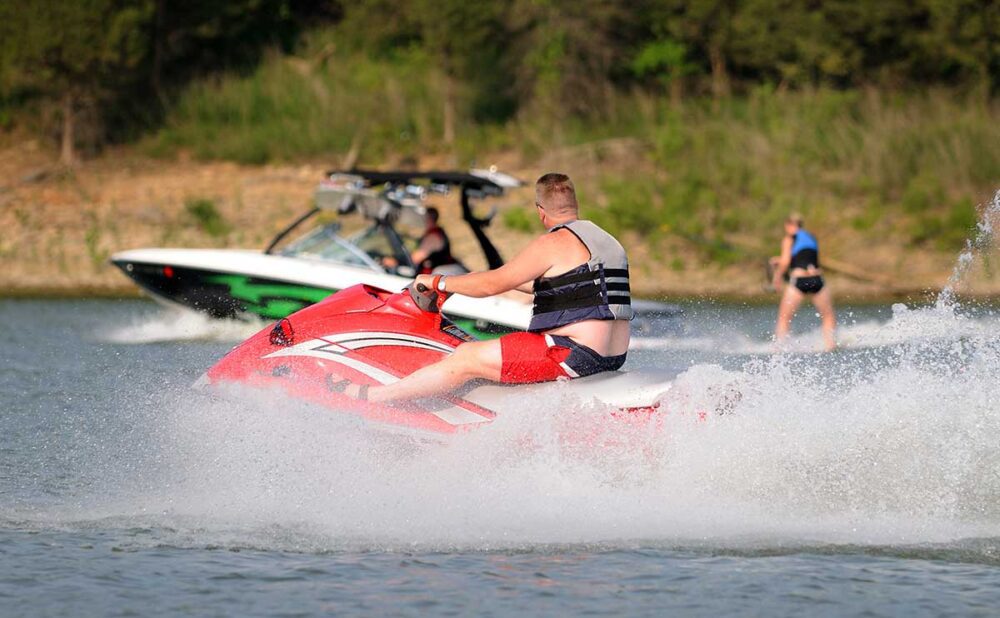Navigating Georgia Waters: Essential Boating Safety and Legal Guidelines
Boating is a cherished pastime in Georgia, offering a unique way to explore the state’s scenic waterways, from the tranquil lakes of the north to the sprawling coastlines along the Atlantic Ocean. Whether you’re a seasoned sailor or a novice boater, understanding the essentials of boating safety is crucial to ensure a fun and secure experience on the water. This article serves as a comprehensive guide to boating safety in Georgia, detailing the necessary regulations, recommended safety practices, and emergency procedures that every boater should be familiar with. By adhering to these guidelines, you can protect yourself, your passengers, and other waterway users, while fully enjoying the natural beauty and recreational opportunities that Georgia has to offer.
Boating Statistics
Annually, the U.S. Coast Guard gathers data on recorded incidents of recreational boating accidents. This data is obtained from accident reports submitted by the individuals who own or operate recreational vessels that were involved in these accidents. The Coast Guard receives accident report information from all fifty states, five U.S. territories, and the District of Columbia, which is then compiled and published in the Boating Statistics report each year. You can download the 2023 Recreational Boating Statistics publication here.
Insights from the 2023 Recreational Boating Report
The latest findings from the U.S. Coast Guard's 2023 report on recreational boating incidents revealed a promising trend toward increased safety on the water.
Fatalities saw a significant drop of 11.3 percent, with the number falling from 636 in 2022 to 564 in 2023. Additionally, the total incidents reported decreased by 4.9 percent, from 4,040 to 3,844. Non-fatal injuries also saw a decline of 4.3 percent, underlining an overall improvement in boating safety.
The report highlights that alcohol remains a concerning factor in fatal boating accidents, contributing to 79 deaths in 2023. Operator inattention, improper lookout, operator inexperience, excessive speed, and machinery failure were identified as the top five primary causes of accidents, emphasizing the importance of vigilance and proper training for all boaters.
Drowning remains a significant risk, accounting for 75 percent of deaths, with a staggering 87 percent of victims not wearing life jackets. The Coast Guard urges all boaters to prioritize safety by wearing serviceable, properly sized, and correctly fastened life jackets always.
The 2023 recreational boating report reflects a positive trajectory towards enhanced safety practices and awareness within the boating community. By staying informed, prepared, and safety-conscious, boaters can contribute to a safer and more enjoyable boating experience for all.
Regulations and Legal Requirements
Boating in Georgia is a popular pastime, offering residents and visitors alike the opportunity to explore the state’s many lakes, rivers, and coastal waters. However, with the privilege of navigating these waters comes the responsibility of understanding and adhering to Georgia’s boating regulations and legal requirements. Boaters must remain vigilant on the water, especially during seemingly optimal conditions. Most incidents occur unexpectedly, highlighting the need for constant awareness, adherence to navigation rules, and respect for safety guidelines.
All boating laws are under O.C.G.A. Title 52, Chapter 7.
The Handbook of Georgia Boating Laws and Responsibilities promotes a higher level of enjoyment and safety on Georgia’s waters. Its purpose is to offer Georgia boaters a convenient guide that outlines the obligations set forth by the Georgia Boat Safety Act and the corresponding regulations. This handbook serves as a comprehensive resource for recreational boaters in Georgia, providing them with a clear understanding of the state’s boating laws. For further information on responsible boating practices and safe boat handling, the publication BOAT GEORGIA: A Course on Responsible Boating offers supplementary details.
Ensuring that you are compliant not only promotes safety but also helps preserve Georgia’s natural waterways for future generations. This section will cover the essential regulations and legal requirements, including boating licenses, safety equipment, and registration and titling.
Boating Licenses
In Georgia, anyone born on or after January 1, 1998, must complete a boating education course approved by the Department of Natural Resources (DNR) to legally operate a motorized vessel. Upon successful completion, operators will receive a Boater Education Card, which must be carried at all times while operating the boat. This education ensures that boaters are knowledgeable about navigation rules, emergency procedures, and safe boating practices.
Minors between the ages of 12 and 15 can operate a boat with a motor of 30 horsepower or less if they are accompanied by an adult who is at least 18 years old and who has completed the boating education course. For those over 16, the same education requirements apply as for adults.
Safety Equipment
Safety equipment is a crucial aspect of boating regulations in Georgia. The state mandates that all boats must be equipped with certain safety gear to ensure the well-being of everyone on board. Key requirements include:
- Personal Flotation Devices (PFDs). Each vessel must have a U.S. Coast Guard-approved life jacket for every person on board. Children under the age of 13 are required to always wear a PFD while the boat is underway.
- Fire Extinguishers. Boats with enclosed fuel or engine compartments must carry a fire extinguisher. The type and quantity depend on the size and type of the vessel.
- Sound-Producing Devices. Boats must be equipped with a device capable of producing a sound signal, such as a horn or whistle, to signal intentions or alert other vessels of their presence.
- Visual Distress Signals. Vessels operating on federally controlled waters must carry night signals. Boats 16 feet or longer must also carry day signals.
- Navigation Lights. Boats operating between sunset and sunrise, or during periods of reduced visibility, must display the appropriate navigation lights to indicate their presence and orientation to other vessels.
Registration and Titling
All motorized vessels used on Georgia waters must be registered with the Georgia Department of Natural Resources. This includes personal watercraft and sailboats over 12 feet in length. The registration process requires you to apply, prove ownership, and pay the appropriate fee. Upon successful registration, boat owners will receive a registration number and a validation decal, both of which must be displayed prominently on the vessel.
In addition to registration, certain boats must also be titled. This applies to vessels that are 12 feet or longer and have a 10 horsepower or greater engine. The title serves as legal proof of ownership and is crucial for transferring ownership or securing financing.
Failure to comply with these regulations can result in fines, penalties, and even impoundment of the vessel. Therefore, it is essential for all boaters in Georgia to familiarize themselves with these requirements and ensure they are fully compliant before heading out on the water.
By adhering to Georgia’s boating regulations and legal requirements, you not only contribute to the safety of all waterway users but also help protect the state’s beautiful aquatic environments. Remember, safe boating is everyone’s responsibility.
Safety Practices
Boating safety is a paramount concern for all who enjoy Georgia’s waterways. Adhering to recommended safety practices not only ensures your well-being but also that of your passengers and fellow boaters. This section outlines vital safety practices, from pre-departure preparations to conduct while on the water and weather awareness.
Pre-Departure Checklist
Before setting sail, a thorough pre-departure checklist is essential to ensure that your vessel is equipped and ready for a safe journey. Here are key items to include:
- Safety Equipment. Verify that all required safety equipment is on board and in good working condition. This includes life jackets for every passenger, a first aid kit, fire extinguishers, visual distress signals, and a sound-producing device like a whistle or horn.
- Communication Devices. Ensure you have reliable communication devices, such as a VHF marine radio or a fully charged mobile phone, to contact emergency services if needed.
- Fuel and Engine Check. Inspect fuel levels and engine condition. Ensure you have enough fuel for the trip, plus a reserve, and check for any signs of engine trouble.
- Weather Forecast. Check the latest weather forecast for the duration of your trip. Unfavorable weather conditions can turn a pleasant outing into a dangerous situation.
- Float Plan. File a float plan with a trusted friend or family member. Include details such as your departure point, intended route, estimated return time, and contact information.
- Navigation Tools. Have updated nautical charts, a compass, and a GPS device on board to help you navigate safely.
- Personal Items. Bring sunscreen, sunglasses, appropriate clothing, and plenty of drinking water to stay hydrated.
On-Water Conduct
Once you are on the water, proper conduct and attentiveness are crucial to maintaining safety. Here are some best practices:
- Speed and Wake Control. Adhere to posted speed limits and be mindful of your wake, especially in crowded areas, near the shoreline, and in designated no-wake zones.
- Right of Way. Understand and follow the rules of navigation to avoid collisions. Powerboats should generally yield to sailboats, and slower vessels have the right of way over faster ones.
- Alcohol Consumption. Avoid alcohol consumption while operating a boat. Consuming alcohol can lead to decreased judgment and slower reaction times, increasing the likelihood of accidents.
- Lookout Duty. Always designate a lookout to watch for other vessels, swimmers, and potential hazards, especially when navigating congested waterways.
- Passenger Safety. Ensure all passengers remain seated while the boat is in motion and that they are aware of safety protocols, including the location and proper use of life jackets.
Weather Awareness
Weather conditions can change rapidly on the water, and being prepared is essential for safety:
- Monitoring. Continuously monitor weather conditions using your VHF radio, weather apps, or other reliable sources. Pay attention to changes in wind, clouds, and temperature.
- Storm Preparation. If a storm is approaching, seek shelter immediately. Head to shore if possible, or find a sheltered area away from open water.
- Fog and Low Visibility. In foggy conditions or low visibility, reduce speed, use navigation lights, and sound your horn at regular intervals to alert other boaters to your presence.
- Heat Precautions. In Georgia's warm climate, heat-related illnesses can be a concern. Protect yourself and your passengers by wearing lightweight clothing, staying hydrated, and taking breaks in shaded areas.
By adhering to these safety practices, you can significantly reduce the risks associated with boating and ensure a safe and enjoyable experience on Georgia's beautiful waterways.
Emergency Procedures
When it comes to boating in Georgia, being prepared for emergencies is crucial. Despite the best precautions, unforeseen situations can arise on the water. Knowing how to respond in an effective manner can have a significant impact. Here are some critical emergency procedures every boater should be familiar with:
Man Overboard
A "man overboard" situation is one of the most urgent and potentially dangerous emergencies you can face on a boat. Here’s how to handle it:
- Alert the Crew. As soon as you realize someone has fallen overboard, shout "Man Overboard!" to alert everyone on the boat.
- Throw a Floatation Device. Immediately throw a life ring or any available flotation device to the person in the water. This provides them with immediate support and marks their location.
- Keep Visual Contact. Assign one person to continuously point at the individual overboard to help the captain keep track of their location.
- Turn the Boat Around. Carefully maneuver the boat back towards the person. Approach from downwind and slow down as you get closer.
- Rescue. Once alongside, stop the engine to avoid propeller injuries. Use a lifeline or a rescue ladder to help the person back aboard.
Fire Onboard
A fire onboard can escalate rapidly and poses a severe threat. Quick and efficient action is critical:
- Raise the Alarm. Alert everyone on the boat to the fire by shouting "Fire!" so they can prepare to assist or evacuate.
- Cut the Fuel Supply. If the fire is near the engine, turn off the fuel supply to prevent it from spreading.
- Use Fire Extinguishers. Every boat should have the appropriate type of fire extinguisher on board. Use it to tackle the fire, aiming at the base of the flames and sweeping side to side.
- Move Passengers to Safety. Ensure all passengers are wearing life jackets and move them to a safer part of the boat, away from the fire.
- Call for Help. Use your marine radio to call for assistance. Provide your current location and a brief description of the emergency.
- Abandon Ship If Necessary. If the fire is out of control, prepare to abandon the ship. Ensure everyone has a life jacket on and use the lifeboat or life rafts if available.
Engine Failure
Engine failure can be inconvenient and potentially hazardous, especially in adverse weather conditions or busy waterways. Follow these steps to properly address the situation:
- Assess the Situation. Determine the cause of the engine failure. It could be due to fuel issues, electrical faults, or mechanical problems.
- Drop Anchor. If you're in open water, drop anchor to prevent drifting into dangerous areas like rocks or other boats.
- Signal for Help. Use visual distress signals like flares or flags, and your marine radio to call for assistance. Furnish your precise location and outline the problem.
- Attempt Repairs. If you have the skills and tools, try to fix the issue. Sometimes the problem might be as simple as a clogged fuel line or a tripped circuit breaker.
- Stay Calm. Keep everyone calm and ensure that all passengers are wearing life jackets. Reassure them that help is on the way.
By being well-prepared and knowing how to handle these emergencies, you can ensure a safer boating experience in Georgia. Always keep your emergency equipment in good condition and review these procedures regularly with your crew and passengers.
Prioritize Safety While Boating in Georgia
Boating in Georgia offers a unique and enjoyable experience, whether you’re navigating the serene waters of Lake Lanier or exploring the coastal beauty of the Golden Isles. However, the privilege of boating comes with a significant responsibility to ensure safety for yourself, your passengers, and other waterway users. Adhering to regulations and legal requirements, such as obtaining the proper boating licenses, equipping your vessel with mandatory safety gear, and ensuring your boat is properly registered and titled, lays the foundation for a safe boating environment.
Beyond compliance with the law, adopting best safety practices is crucial. Conducting a thorough pre-departure checklist, maintaining vigilant on-water conduct, and staying informed about weather conditions can dramatically reduce risks and enhance your boating experience. Familiarity with emergency procedures, including how to handle a man overboard situation, extinguish a fire onboard, or manage an engine failure, prepares you to act swiftly and effectively in crisis situations.
Ultimately, boating safety in Georgia is a combination of knowledge, preparation, and proactive behavior. By committing to safety, you not only protect yourself and your loved ones but also contribute to a safer boating community. Embrace the beauty and adventure that Georgia’s waterways offer, but always prioritize safety to ensure that your boating experiences are both enjoyable and secure.
If you or a family member has been injured in a boating accident due to the negligence of another, the experienced boat accident lawyers at The Jewkes Firm are here to guide you through the next steps. Contact us today at (770) 771-5130 or fill out the form for a FREE consultation.
Coast Guard releases 2023 recreational boating statistics. (n.d.). United States Coast Guard News. Retrieved May 29, 2024, from https://www.news.uscg.mil/Press-Releases/Article/3788966/coast-guard-releases-2023-recreational-boating-statistics/






